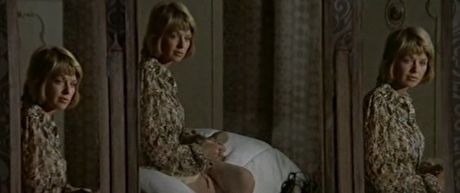
You've read the title of the article. You know I'm going to talk about Jaws. But, much like Spielberg's use of the shark in the film, I'm going to make you wait for it. Instead, let's chat about superhero movies for a hot second.
If you frequent the movie nerd interwebs you're likely already familiar with Tony Zhou's damning video essay "The Marvel Symphonic Universe. " What's that? You totally know what I'm talking about but just want me to explain it to prove I know what I'm talking about? Really? That's how we're going to play this? Okay. I see how it is.
Zhou, who regularly kicks ass through his YouTube channel Every Frame a Painting, took to the streets to ask regular folks to hum the scores for Star Wars, James Bond, and Harry Potter. Like the pop culture sponges we all are when it comes to things like this, every person interviewed obliged with roughly accurate, if not always sonically pleasing approximations of those purdy tunes that done played in the background of all dem movies (I say in a southern accent for no discernible reason). However, Zhou stumped every interviewee with a seemingly simple question: can you sing anything from a Marvel movie? Of course no one can! Marvels's assembly line films (which I love, btw) have always had two consistent weaknesses: terrible villains and bland musical scores (I say that as someone who regularly listens to those scores on Spotify).
But have you ever wondered why? Well, not so much the villains thing. That goes back to the source material. The Marvel music, though, has been created by music scoring luminaries (Alan Silvestri for Captain America: The First Avenger and The Avengers, Danny Elfman for Age of Ultron) and up and comers alike (Brian Tyler for Iron Man 3, Thor 2 and AoU, which he collaborated on with Elfman). However, while these scores have all been more than serviceable for their individual films they've failed to actually transcend those films and enter the pop culture lexicon. In fact, as Zhou argued, almost no music scores do anymore, possibly because they all sound so similar thanks to the reckless overuse of temp music.
What is Temp Music?Temp music is essentially placeholder score that directors use during the editing process. Zhou uses a quote from composer Danny Elfman to explain how directors sometimes fall in love with the temp music, and ask composers to create something similar, rather than pen something entirely new. And so temp music, Zhou posits, is slowly making films sound the same.
Turns out, the problem with the Marvel Symphonic Sound is actually industry-wide:
To paraphrase Vince Lombardi, what the hell is going on here? I know J ames Horner repeatedly plagiarized himself, and the reason Scream 2 has the same music as Broken Arrow is because the Scream 2 people used that as a temp track and just decided to stick with it. There are other such examples throughout music history, but we are now living in the age of peak music rip-off. It must be because of, um, advances in technology allowing directors to cut their entire films to different music?
Wrong! Directors have been doing that for decades. Spielberg did it with Jaws!
Finally, we get to Jaws. Jaws was finished and cut together before John Williams ever saw frame one because that's generally how films are made. The composer comes in at the lost possible second, watches the finished film and adds a layer of music over it, often times making the director and actors look like geniuses in the process. For Spielberg and Williams, Jaws was to be their second collaboration, the two having first met when the 26-year-old wunderkid director recruited the veteran composer to score The Sugarland Express (1974). Spielberg had admired Williams work since The Reivers (1969), and made it his mission to work with him someday. Their Sugarland experience was so successful there was no doubt who would score Spielberg's next picture.
Jaws was finished and cut together before John Williams ever saw frame one because that's generally how films are made. The composer comes in at the lost possible second, watches the finished film and adds a layer of music over it, often times making the director and actors look like geniuses in the process. For Spielberg and Williams, Jaws was to be their second collaboration, the two having first met when the 26-year-old wunderkid director recruited the veteran composer to score The Sugarland Express (1974). Spielberg had admired Williams work since The Reivers (1969), and made it his mission to work with him someday. Their Sugarland experience was so successful there was no doubt who would score Spielberg's next picture.
Remember, though, Jaws was still just Spielberg's second feature-length film; it was Williams' 43rd. Spielberg was young and ambitious enough to think he knew exactly what he wanted, but not dumb enough to stick to his guns when someone with more experience told him differently. It's a good thing, too, because the type of score Spielberg wanted for Jaws could not have been more wrong for the film he made.
This:
Could have sounded more like this:
Because Spielberg used Williams' score for Robert Altman's Images (1972) as a temp track during editing, expecting and hoping Williams would take a similar approach with Jaws.
Wait. Images? Never heard of it. What's it about? What did Williams' score sound like? Images is a cold, mind-fuck thriller starring Susannah York as a children's author who goes a little ka ka while staying at her remote vacation home. Considering the schizophrenic nature of the central character, Williams felt "the music should be done in two parts and it should have a duality for those reasons," as he told Knowing the Score in 1975. The majority of the soundtrack takes its cues from "ominous wind-chimes while flirting with atonality and dissonance, " usually accented by "sporadic eruptions of Japanese percussion, created by the celebrated avant-garde composer Stomu Yamashta."
Images is a cold, mind-fuck thriller starring Susannah York as a children's author who goes a little ka ka while staying at her remote vacation home. Considering the schizophrenic nature of the central character, Williams felt "the music should be done in two parts and it should have a duality for those reasons," as he told Knowing the Score in 1975. The majority of the soundtrack takes its cues from "ominous wind-chimes while flirting with atonality and dissonance, " usually accented by "sporadic eruptions of Japanese percussion, created by the celebrated avant-garde composer Stomu Yamashta."
Sounds perfect for Images; totally wrong for Jaws.
You can maybe see why Spielberg picked Images as his temp track since the music in that film purposefully plays with duality, and Jaws has its own form of duality, playing out in two very different halves, i.e., the suspenseful build-up followed by the fast-paced horror-thriller on the boat. Williams recognized as much and brilliantly crafted his score accordingly. As Matthew McDonald, associate professor of film music at Northeastern University, told Boston.com last year:
"It's almost as if there are two kinds of genres being played within that movie, the more suspense, Hitchcock-type movie, and then switching to more of a horror-type mode. The music is used in two different ways, and it shows the sensitivity of John Williams and how he and Spielberg were in sync in what they were doing.''
But they were not actually in sync at first. In fact, the first time Spielberg heard Williams' theme for the shark he thought it was a joke. From the booklet which came with the 40th anniversary Blu-Ray:
Spielberg: When John played me the Jaws score on the piano, I thought he was pulling my leg. And he played it again. And then he played it until I stopped laughing. I had a more esoteric idea musically in mind. He said 'The sophisticated approach you would like me to take isn't the approach you took with the film I just experienced. This is a huge, over-the-top pirate movie'"
And now you can't possibly imagine Jaws without Williams' music, which Spielberg regularly credits as being responsible for at least "half of the success" of the film.
That's some fun trivia, but what's your actual point?Two of the three film scores Tony Zhou asked random Vancouver people to hum came from the mind of John Williams ( Star Wars, Harry Potter), and one of his most iconic scores could have sounded very different if he had honored the director's request. To Williams' credit, he spoke up, and to Spielberg's credit he listened. Let this be but a small example of the benefit of filmmakers actually choosing to collaborate with their composers as opposed to dictating a certain sound to them based entirely on something they already heard in a different movie. You're obviously not going to get something on par with Jaws every time you let a composer do his or her job, but that will at least be a possibility if you give them the chance.

